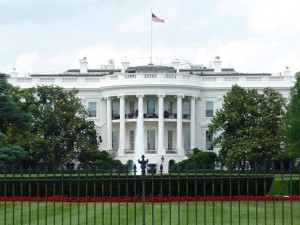
Not the flavour of the week
For the week through to last Friday sterling was under pressure. Almost none of the UK economic data were helpful to its case and, on the odd occasion that a statistic did spring a positive surprise, investors found a reason to ignore it.
The consumer price index figures were a classic example. In recent months investors have fretted about inflation outpacing wages, eating into real earnings and dampening demand. Tuesday’s figures showed a slowdown in headline inflation from 2.9% to 2.6%, narrowing that gap. But investors were not satisfied: lower inflation would, they decided, reduce the upward pressure on interest rates.
Nor did they appreciate the June pickup in retail sales, which went up by a monthly 0.6%. That was because the increase failed to make up for the previous month’s drop. In essence, investors were unhappy with the pound and when they couldn’t find a reason to sell it they found an excuse not to buy it. It’s a sentiment thing.
The pound lost out to all the major currencies, falling by an average of -1.3%. Among its losses were two euro cents, two and a half Swiss cents, two Japanese yen and three NZ cents.
Not the flavour of the month
On the economic front the US dollar made no unforced errors. Data for building permits, housing starts, initial jobless claims and private sector business activity all beat expectations, albeit some of them not by much.
Unfortunately, investors’ attention remains irresistibly drawn to the controversies that continue to surround the White House. As the weeks pass they become steadily more convinced that Donald Trump will struggle to get his legislative agenda back on the rails. Expectations have fallen so low that, if the president were to get something through the Senate, the dollar would enjoy a relief rally.
Until then it suffers. Although it did manage to take two thirds of a cent off the embattled pound last week it was down by more than three cents on the month.
The flavour of 2017
The euro has been the top performer since the turn of the year, strengthening by four cents against sterling and by ten cents – more than 9% – against the US dollar. Two things in particular helped it to add one and a third US cents in the last week.
First, the ECB president let it be known that the central bank will start to think about winding down its quantitative easing programme “in the autumn”. The revelation was hardly a surprise but everyone get very excited.
Second, the Greek government announced that it would borrow money through the bond market for the first time in several years. The move helps create the impression that the country has moved on from its role as Euroland’s financial pariah, a development that should be positive for the euro.
The good news
A week ago the Reserve Bank of Australia sent the Aussie higher when the minutes of a board meeting appeared to imply a two-percentage-point increase in interest rates.
Everybody likes higher interest rates.
The bad news
Guy Debelle, a deputy governor of the RBA, used a speech three days later to pour cold water on the idea. He said investors had read too much into what was really a technical observation. Mr Debelle’s comment sent the Aussie lower but it was still ahead by a cent and a half on the week.
Sarah, Senior Account Manager at Moneycorp
Moneycorp is one of the largest international payment companies supporting over 90 currencies. Last year Moneycorp traded over £22.6 billion worth of international money transfers. Find out how Moneycorp can help you with your international transfer here.







